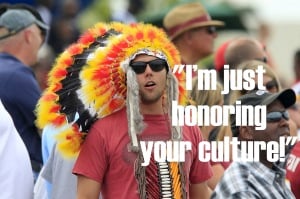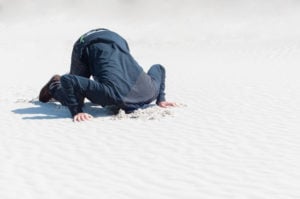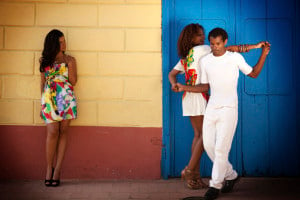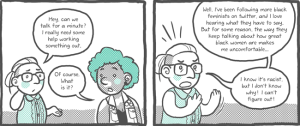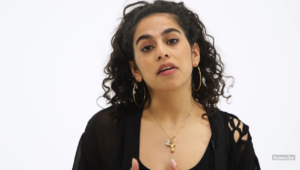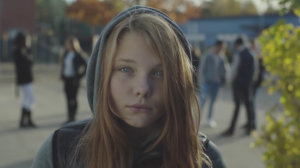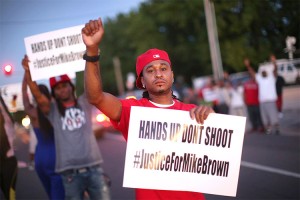
Source: NBC
The police murder of Michael Brown and the courageous resistance of his family and the Black community in Ferguson, Missouri, have once again brought the attention of the country to the devastating reality of racist violence, structural inequality, and the need for Black communities to demand “Black Lives Matter.”
With outrage, grief, and pain all over the country, I’m writing this to white people in particular as a call to action to stand with the people of Ferguson and to work against racism.
But first, let’s be honest with each other: White fear of Blackness isn’t just something that racist extremists experience. It’s a core part of white consciousness and how structural violence and inequality are maintained.
I remember a few years ago, opening my front door and seeing five unfamiliar Black teenage boys on and around my front porch. With my baby in my arm, my initial reaction was fear – fear that these teenage boys would reenact countless scenes of racialized crime and violence that I’ve consumed since I was a little kid.
It’s not the kind of experience someone who has been doing anti-racist work for 25 years likes to admit having, but this isn’t a time for false pretenses to protect our egos. This is a time for white people to recognize that our irrational fears of Blackness are the result of the logics of white supremacy, which are intended to concentrate power into the hands of the few by creating and maintaining structural violence and inequality.
Throughout my life, I have routinely experienced fear of Blackness, particularly working class and poor Black men, as it has been intimately and relentlessly weaved into my subconscious through images, everywhere, of dark-skinned people doing bad things to light-skinned people, and in my consciousness through political, economic, and cultural attacks, everywhere, on Black communities.
For a long time, I felt guilty for having these feelings, and they demobilized me. But over time, I began to recognize the roots of these fears, and I tapped into my rage for the white supremacist society that raised me and rewards me for having them, and that rage has helped mobilize me.
When I experience these irrational fears, I remind myself that this is the legacy of slavery, of Jim Crow apartheid, of anti-Black racism used to justify economic exploitation and social violence, that these fears are one of the ways that white supremacy lives in my body and subconsciously works to organize my life by dividing me from Black people, supporting (actively or through indifference) their subjugation, and uniting me to ruling class agendas of concentrating wealth and power through structural violence and inequality.
I also remind myself of who has actually, historically, been the target of race-based violence. I think of the power of multiracial justice organizing and community in my life and how racism actively works to destroy such community and how grateful I am to all who throughout history have worked to create another way for us to be together.
And finally, I think about how poisonous these racist fears and hatreds are, how they generated guilt and shame in my life as worked to become a social justice activist, and the damage and pain they create in the lives of the people I love all around me.
And I let all of this converge in my body, to feel the emotional roots of why I am committed to collective efforts to ending the horrors of white supremacy in all of our lives.
The struggle to liberate our minds and bodies is vital, and it must be part of larger collective efforts to confront existing unjust power and create structural equality and justice for all people.
Here are nine suggestions to help move forward.
1. Demonstrate Our Outrage and Demand Change
In whatever way you can, make your opposition to these police murders of Black people known.
Look to see if there are demonstrations organized by Black- and people of color-led groups that you can participate in and recruit people to join. Support these efforts in whatever way you can.
If such demonstrations are not taking place, reach out to people in your life and help create public expressions of outrage, protest, and grief with a central message that Black Lives Matter, these murders must end, and opposition to racism.
In rural areas, towns, suburbs, and cities in every region of the country, we must act with the people in Ferguson and with Black communities around the country protesting the racist murders in their communities.
Every 28 hours a Black person is murdered by police, security guards, and white (or non-Black) people who declare they were protecting themselves from Black people.
Demonstrations are an opportunity to move people in our lives to take a stand, and to build relationships with people and organizations in our communities.
2. Grieve and Love Publicly and Privately
Connect to the pain of this moment and be with the pain that is all around us in our families and communities.
Often we skip grieving and go to action, but grieving can connect us to a deeper power within us, and connect us to each other. Capitalism wants us to detach from our emotions, to detach from ourselves and the impacts we have on each other and the world.
Liberation is a process of re-attachment to our humanity, the humanity of others, the earth and the sacredness of life.
Love others as they grieve, be present, be supportive, and find strength in our relationships with one another.
Try not to fear grief, as there is power in our collective and personal grief. Fear the numbing of structural violence and inequality that robs us of the power of love in the face of the death culture we live in.
3. Awaken and Change Hearts and Minds
The protests in Ferguson and the pleas from loved ones of Michael Brown, particularly his mother, have created a national focus on the epidemic of police murders of Black people. This focus can shine a light on white supremacy and the everyday racism of our society.
This is a moment when people, white people in particular, are searching to make sense of what is happening. This is a moment when we can work for mass conversation, to raise consciousness, to awaken people in our lives and networks to the brutal dehumanizing reality of injustice, as well as the possibilities of working for systemic equality.
Do not be afraid to speak the truth with courage, take small steps, celebrate small victories, and build your confidence to do more.
4. Get Connected and Throw Down
Work on and support Black- and people of color-led justice campaigns nationally and locally. Get involved in struggles to win changes and use those campaigns to get more and more of the people in your life involved.
Get involved in whatever works for your life.
All of what we do matters, when we do it together, with a goal and vision of where we are going.
First, make a donation and support the St. Louis-based The Organization for Black Struggle who are working in Ferguson.
Get connected with Color of Change, Not One More Deportation, and Jobs with Justice.
Then check out the new Police Brutality Action Kit designed for white activists by Showing Up for Racial Justice (SURJ).
5. Bridges, Not Divisions
The divisions of race, class, and gender play out in society and in our work for change.
This is to be expected, so we must do all we can to prepare ourselves to overcome these divisions.
Anti-racism, feminism, class consciousness, disability justice, and other social justice efforts can help us create powerful solidarities, communities, alliances, and movements to change society.
6. Build Liberation Culture Rooted in People’s History
Help create cultures of solidarity and love between our communities and different struggles.
Every day, in profound and subtle ways, we are torn apart from each other and told we are powerless. This self-defeating narrative in the minds of everyday people is critical for rulers to maintain power.
We must tune in to the long traditions of narratives of mutuality, empowerment, and collective liberation, particularly in communities of color and working class communities. We must learn about and celebrate the stories of everyday people coming together, and share our own stories with our communities.
7. Set Goals to Help Us All Get Free
Goals for your work for justice, for your personal growth, and for your efforts to create cultures of solidarity and love.
Find what motivates you to take action, and remember that we are in this for the long haul.
8. Study to Decolonize Your Mind and Reclaim Your Heart
Take time to read and study those who have gone before us, and learn the lessons from their efforts. Root yourself in the history of people’s movements for justice and equality.
Read analyses to help make sense of the economic and political system and how exploited labor, white supremacy, patriarchy, homophobia, and ableism are central to the structural violence and inequality in our society.
Learn about the visionary change others envision and develop your own vision.
Get started with Colorlines, The Feminist Wire, and the Zinn Education Project.
9. Be Powerful
Develop your abilities through personal and collective efforts to be as powerful, effective, healthy, and whole as you can be. We need people who are fully alive to win and create the change we need.
Remember that we grow in powerful ways through collective action for justice.
Our trust in ourselves and in each other grows as we challenge illegitimate authority and realize the power we have together in creating a democratic society with equality and justice, truly, for all people.
We are more brilliant, strategic, visionary, and effective then we know when we believe in each other and ourselves and take action together.
***
For Michael Brown, Eric Garner, Renisha McBride, Trayvon Martin, and so many more and all their families. For Black children around the country who grow up in the shadow of socially sanctioned racist violence. For white children and all non-Black children who are being raised to fear and hate Blackness and detach from their humanity in the process.
Let us be courageous in the face of this violently racist society. Let us draw strength from past people’s movements and join with others today to end racism, work for racial justice, and create a much better world for all of our children and young people. Let us move beyond fear and guilt and cultivate our love and rage.
[do_widget id=”text-101″]
Chris Crass is the father of a beautiful little boy named River, and is a longtime social justice organizer who writes and speaks widely about anti-racist organizing, feminism for men, lessons and strategies to build visionary movements, and leadership for liberation. He is the author of Towards Collective Liberation: Anti-racist Organizing, Feminist Praxis, and Movement Building Strategy, published by PM Press. He is a Unitarian Universalist and lives in Nashville, Tennessee. His website is www.chriscrass.org.
Search our 3000+ articles!
Read our articles about:
Our online racial justice training
Used by hundreds of universities, non-profits, and businesses.
Click to learn more





